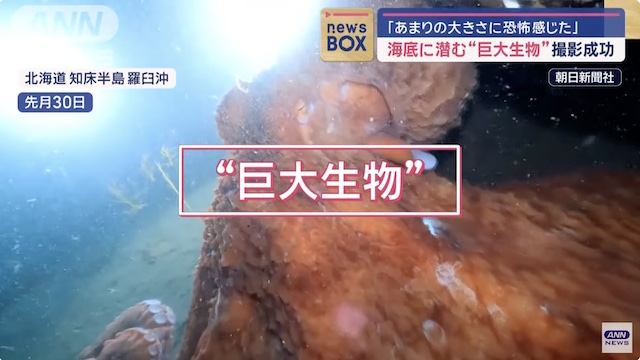HOKKAIDO, Jun 14 (News On Japan) - In the waters off Rausu, Hokkaido, at a depth of about 25 meters, a massive creature was discovered, writhing and undulating.

The photographer, who felt a sense of terror at the creature's size, shared his experience.
Asahi Shimbun’s Nemuro bureau chief, Tomoyuki Yamamoto, who captured the footage, said, 'It looked like a rock. There are places on the sandy seabed of Rausu with many rocks. That huge rock wasn’t moving.'
Yamamoto continued, 'Upon closer inspection, there were suction cups and eyes. Oh! It's an octopus.'
The creature turned out to be a Pacific giant octopus (mizudako).
This species is said to be the largest in the world, with an arm span of about 3 meters. Each arm of the mizudako has 250 to 300 suction cups, each measuring around 10 centimeters in diameter.
Yamamoto explained, 'The suction cups are always clean and smooth, maintained to ensure strong adhesion. The strength is tremendous, so if the octopus attaches itself to you, you must rely on your diving partner to help you. It's difficult to do anything on your own.'
Due to its powerful suction, caution is advised when approaching a mizudako compared to an ordinary octopus.
Source: ANN















